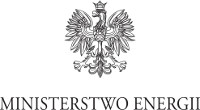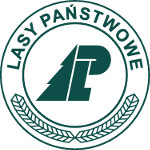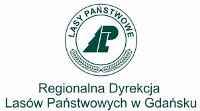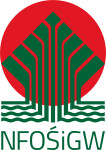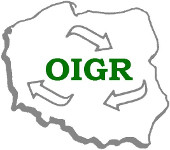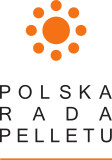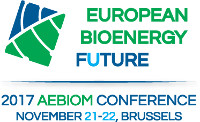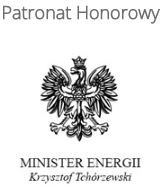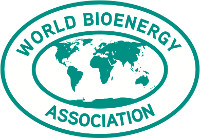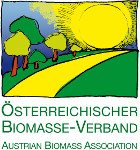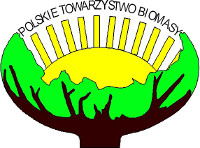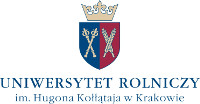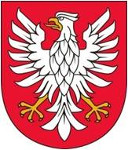| Article Index |
|---|
| Start |
| Gallery |
| 2nd Day of the Forum |
| Previous editions |

Poland is one of the European Union countries with the largest amount of biomass. During the 7th Forum of Biomass and Waste, which took place on 1-2 March in Warsaw, it was considered how to use its potential, with particular emphasis on combustion to produce heat and energy.
Daniel Borsucki, representative of the Governing Board of the Polish Committee of the World Energy Council, who opened the Forum, referred to coal, which is still our basic energy carrier. We should not strive to strengthen the superiority of some fuels over others. We need a rich energy mix, with stable energy sources, giving a sense of energy security. An important place in this mix should be occupied by biomass, because not only it is a renewable source of energy, but also can be used in cogeneration, and thus for generation to heat and electricity simultaneously - said Daniel Borsucki. - However, it is necessary to convince not only investors, but also all those who decide about the shape of Polish law. This is the role, among others, of The World Energy Council, associating 98 countries, including Poland, promoting the use of energy in an efficient and environmentally friendly way.
Andrzej Kaźmierski, Director of the Renewable Energy Department at the Ministry of Energy, talked about the directions of legislative changes regarding the use of biomass and renewable energy. He pointed out that both in Europe and in Poland the approach to energy is changing and it is often difficult to consensus. Some say nothing to burn, others suggest limiting the acquisition of energy from unstable sources, including wind energy. The problem is also water power, disrupting water flows. Also the use of biomass for energy purposes has both supporters and opponents. You need to find a golden mean, and it is not easy at all - said the representative of the Ministry of Energy. Andrzej Kaźmierski focused on the draft of amendment to the act on renewable energy, which includes provide public support for renewable energy sources, greater use of local biomass (energy clusters, energy cooperatives) , biomass-based cogeneration, etc.). The draft of amendment to the Renewable Energy Act will soon be submitted to the government for deliberations.
Problems related to the use of wood biomass for energy purposes were introduced by Mariusz Błasiak, the head of the Department for Coordination of Development Projects Implementation in the General Directorate of State Forests. He spoke about the potentials and possibilities of using wood in the energy sector, but at the very beginning of his presentation he emphasized that the forest leads to sustainable forest management and it is not just a wood factory. In addition to the production function, hence supply of raw material to the industry without harming nature, it fulfills no less important environmental (protective) functions related to the environmental safety of the state. It has a positive impact on global and local climate shaping, the regulation of the water cycle in nature, prevents floods, avalanches and landslides, protects the soil from erosion and the landscape against steppe. The forest also has an impact on our health, enabling recreation and tourism. As long as there is no specific, detailed definition of energy wood, we can not provide such wood, and the possibility of its sale is extremely important for the State Forests, especially in the context of various types of disasters, for example last storm in the forests of northern Poland in August last year. It generated large amounts of energy wood. Some may remain in the forest, but these are strictly defined quantities, the rest are stored for now and we are waiting for a regulation - said Mariusz Błasiak.
Speeches from the Forum's Strategic Partner - Howden Turbo, was provided by Dr. Rafał Rajczyk. The expert presented the company's solutions for thermal recovery of waste and steam turbines. In addition, he discussed a number of investments that the company implemented in Poland, namely: KGHM Głogów, WTE Czajka, SFW Gliwice, Zduńska Wola, and Andrychów. At this point it is worth mentioning that Fumar is a representative of Howden in Poland.
During the Forum there was a panel discussion concerning the European market of alternative and biomass fuels, including pellets, RDF fuels and wood chips. It was considered whether there is a demand for these fuels and what are the possibilities of their use in the power industry. The moderator of the discussion was Agnieszka Skorupińska, Counsel and Law Practice Leader in Environmental Protection Law, CMS law firm. In the discussion participated: Prof. dr. Eng. Krzysztof Biernat from the Automotive Industry Institute, Łukasz Skuza from Grupa Ożarów, Adam Stępień from National Chamber of Biofuels, Jerzy Ziaja from Polish Chamber of Commerce Recycling, dr Andrzej Jastrząb from ENEA Połaniec, Adam Sarnaszek from BIOCONTROL, also representing the Polish Pellet Council, as well as Mariusz Błasiak from State Forests.
Adam Sarnaszek, President of the Management Board of BIOCONTROL (Strategic Partner of the Forum) spoke about the authentication of sources of biomass in the context of fulfilling the condition of maintaining the principles of sustainable biomass development. During the lecture, the expert discussed the scope of the proposed RED2 Directive (009/28 / EC), with particular emphasis on the following issues: RES support systems, modification of guarantees of origin and ILUC. He also referred to the provision introducing national databases to ensure the traceability and origin of fuels, as well as to mitigate the risk of fraud. An important element of the lecture was also the discussion of newly-processed legal provisions relating to biomass and verification requirements: quality, origin, mass balance, sustainability criteria. A separate element of the presentation was the presentation of the Satellite Platform supporting the authentication of Local Biomass online – SyeNERGY. It is a future platform using satellite data to verify and determine key criteria for local biomass and a tool allowing its authentication.
During the Forum, the participants also listened to several presentations within the so-called case study. Ramunas Paskauskas, general director of the cogeneration plant in Kaunas spoke about Lithuania's environmental and social problems in the context of the objectives of the European circular economy. He informed that a new high-efficiency CHP plant for waste energy with 24 MW of electricity and 70 MW of generating capacity is planned to be built in Kaunas. Such a capacity will allow rational use of 200,000 tonnes of municipal waste (remaining after sorting) and industrial waste and will allow to produce 500 GWh of heat and 170 GWh of electricity per year. The power plant will generate about 40% of the city's heat demand.
Stefan Hakansson, managing director of E.ON from Sweden, spoke about the combined heat and power plant that is being built in the neigbourhood of the waste recycling and recycling plant in Stockholm. Great emphasis is placed on creating highly efficient internal loops for water, energy (heat, electricity and steam) and waste materials. The combined heat and power plant will have energy recovery efficiency of 99%. The combined heat and power plant, biogas plant and waste facility will operate in symbiosis. The best available technology will be used to treat flue gas and water treatment. The ash will be processed locally, and the unique dry slag technology will ensure more efficient recovery of metals and ash materials. The biogas plant was built to meet the growing amount of sorted organic waste from households in the region. Organic fertilizer will be a by-product from biogas plants and it is planned to make it available to farmers - Stefan Hakansson explained.
The 7th Forum of Biomass and Waste was, as every year, a platform for the exchange of current knowledge and significant tools in the transfer of know-how, technology and innovation. It gathered, as usual, a wide spectrum of market representatives, including energy industry and industry experts, biomass suppliers, municipal sector representatives, scientists, engineers and technologists, as well as industry organizations, financial institutions and representatives of government and administration. It is to be hoped that conclusions from the meeting will contribute to the further development of the biomass market in our country.
This summary of the 7th Forum of Biomass and Waste was prepared on the basis of an article by Jacek Zyśko, Miesięcznik ŚRODOWISKO.
The Forum was organized by CBE Polska.
The Strategic Partners of the event were companies: BIOCONTROL, Howden and Fumar.
As Exhibitor presented: Badger Meter Europa
The Legal Partner of the event was the CMS law firm.
The Forum was moderated by prof. dr. Eng. Krzysztof Biernat from PIMOT.




